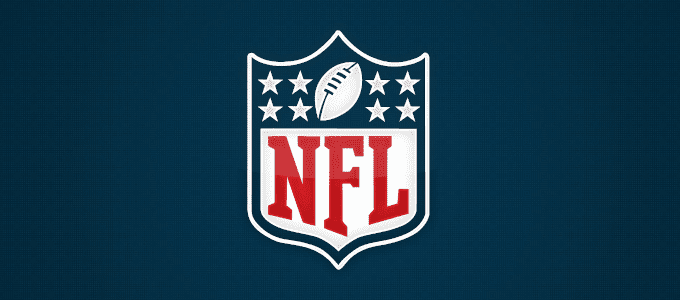Find A Money Fantasy Football League
Fantasy football affords us a way of staying involved with what's going on in the NFL while also providing a competitive outlet that is as strategic as it is fun.
Choosing the perfect lineup of players that will provide the right amount of points to help stomp our opponent into the ground, is what Sundays were meant for. The subsequent trash talking for a full week until the next online battle is just icing on the cake.

For those who have never given fantasy football a chance, joining a fantasy football league may seem like a pointless endeavor. Who cares about a fantasy team when it's really all about the favorite or home team? Well, my friends, it's time to become enlightened on the joys of putting together a fantasy team of gridiron warriors and how to go about doing it.
How To Join An Online Fantasy Football League
Joining a fantasy football league takes commitment. Sundays are no longer holy days. Well, not in the traditional sense at least. Once a decision is made to join a league, football becomes a religion. It's a religion where prayer is made at the altar of our television set, kneeling to pray only takes place for a desperately needed field goal attempt, never the flag, and a Hail Mary takes on a whole new meaning.
There are two versions of leagues available for membership -Public or Private- both which come with their own stipulations.
Public leagues are there for anyone to join. Just head to a website, sign up for an account, then apply for the next draft. Once the allotted slots for membership fill up, the draft will begin. Not much to it at all.

Private leagues will require that an invitation be sent out by the league owner. Once the invitation is received, a keycode or link will grant access.
When it comes to getting started, a Private league is similar to a Public league with slight differences. The draft time is usually set in stone and decided by the league owner as well as most of the rules. Members can have their input if the owner decides to accept it but ultimately the course is set by him or her.
Some Private leagues can last longer than a single season, choosing to roll over from season to season at the discretion of the coaches and owner. These leagues are referred to as either Dynasty Leagues or Keeper leagues, and will take an even bigger commitment as bragging rights for the entire year hang in the balance.
Best Websites For Fantasy Football Leagues

There are plenty of different websites that offer Fantasy Football League signups, most of which will require little more than an account to begin playing.
The host sites below are what we feel are the best for both fantasy football beginners and experts alike.
Yahoo!

Yahoo! was one of the first mainstream sites to offer fantasy football. It has an easy-to-use interface, real-time stat tracking, and in-house fantasy analysis that has many fans coming back season after season.
ESPN

When we think of American sports, we think of ESPN. ESPN offers all-inclusive analysis across a wide variety of media including web content, podcasts, and a Sunday morning fantasy-specific pre-game show. For a one-stop fantasy football site, ESPN is one of the best.
NFL.com

It's hard to talk about American football and not think of the NFL. NFL.com has come a long way in embracing fantasy sports as a key component to the league's popularity. The organization offers many integrated features with fantasy football including fantasy stats shown in stadiums and hosting the official fantasy football service on the website.
CBS

CBS is the perfect place for more detail-oriented fantasy football fans. Plenty of game time analysis, injury reports, and draft help to put together the perfect lineup week after week.
Fox Sports

Another household name in American sports would have to be Fox Sports. With its commitment to the advancement of fantasy sports, Fox Sports offers a detail-rich fantasy service with a lot of online content that goes beyond the week to week setup, including the ability to join a fantasy football league.
My Fantasy League

This site is a lesser known fantasy host site, with a pay service that boasts an incredible amount of league and interface customization. It has won many industry awards and is the place to take our fantasy football skills to the next level.
Old-School DIY League
Some leagues forgo the fancy convenience of a do-it-all site and prefer the pencil to paper method of calculating stats and drafting. Old-school players focus on trades and lineups throughout the week and either meet up in person or dial their changes in by phone.

These leagues tend to also be Keeper leagues and are great for friendly get-togethers that can also carry a bit of competitive fun.
Developing Our Roster
Selecting which players to add to a roster during the draft and beyond requires a bit of foresight, research, and know-how. It can also depend on the draft format the league is running.
Standard Draft – This is the most popular choice, using the serpentine style. This means that the draft order each round will swap from first team to last team, then come back around beginning with the last team all the way to the first.

The league itself will usually be set up as either Head-to-Head, meaning that the winner is determined by the positions in a lineup versus the positions in the opposing lineup, or Total Points, where a winner is picked by adding up all of the points earned by all players on a lineup versus the opponents total score.
Auction Draft – This type of draft is similar to that of an auction. Each player is given a predetermined amount of fantasy cash to bet on certain players who pop-up in the draft. The one who places the highest bid by time's end will win that player for their lineup.
There are other types of draft formats and leagues, but these are the most notable.
Research Tools
After joining a fantasy football league, the statistical analysis afforded by the hosting site is available for use. They tend to provide decent insight into weekly trades and top players to look out for. However, to really become a fantasy expert, there are other tools and sites available that could provide a leg up on the competition.

PFF, Fantasy Pros, 4for4, and Playerline are only a fraction of what is out there. Each of these provides in-depth player analysis, predictions, draft help, and weekly rankings that cover all or most league formats. Some will even offer a mobile app so we can make the best last second lineup decisions.
There are plenty of different sites and tools at your disposal but these are the ones that truly stood out to us. Fantasy football has gained popularity quite rapidly over the years and doesn't look to be slowing down anytime soon. Give these a try and tell us what you think.
Do not share my Personal Information.
Find A Money Fantasy Football League
Source: https://www.online-tech-tips.com/fun-stuff/how-to-join-an-online-fantasy-football-league/
Posted by: mertzaffecke.blogspot.com

0 Response to "Find A Money Fantasy Football League"
Post a Comment